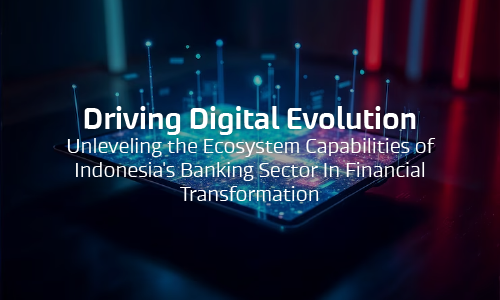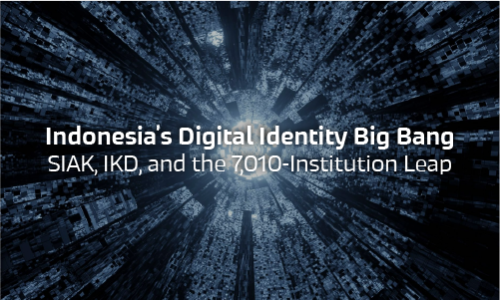
Summary: Indonesia’s banking sector is accelerating its digital transformation by developing ecosystem capabilities that connect banks, customers, and third-party providers into integrated financial services. This article argues that two pillars determine competitive outcomes: ecosystem interoperability, the ability to integrate securely and seamlessly across institutions, and value management, the disciplined creation of customer dependence through superior, bundled, and personalized services. Using a mixed approach that synthesizes recent market developments with a survey of 49 banks and 325 senior respondents (CEOs, CIOs, Heads of IT/Business), we find stronger executive conviction in value-management readiness than in interoperability maturity: 29.85% strongly agree their institutions can retain customers via dependence on products and services, while 21.23% strongly agree they are operating interoperability-oriented models. Building on these results, the paper proposes practical measurement frameworks, an Interoperability Index (coverage, standards conformance, feature breadth, data governance) and a Value-Management Index (relationship depth, engagement, economics, reliability), and outlines how both relate to financial performance. Strategy snapshots for a state-owned bank, a regional development bank, and a digital-native bank illustrate differentiated execution paths. The 2025–2027 roadmap moves from connectivity at scale to embedded and ultimately composable finance. We conclude that Indonesian banks that become both connectors (open, standards-driven, partner-ready) and anchors (sticky, trusted, value-rich) will set the pace of financial transformation and achieve durable advantage.
Indonesia’s banking sector is in the midst of a profound digital evolution.
Rapid shifts in customer behavior, the mainstreaming of cashless payments, the
rise of platform-based commerce, and a policy environment that encourages safe
innovation have converged to push banks far beyond the traditional
branch-and-product paradigm. In this landscape, ecosystem capability; a
bank’s ability to build and leverage interconnected networks of customers,
partners, and third-party service providers; has become a decisive source of
competitive advantage. Rather than operating as stand-alone institutions,
leading banks are learning to orchestrate open, interoperable systems
while simultaneously deepening value management to keep customers
engaged, loyal, and active.
This article develops those themes in full. It begins by restating the core logic: ecosystem capability enables banks to create and participate in multi-party value chains, accelerate product innovation, and deliver integrated experiences at…














